Glossary: Oppa
by javabeans
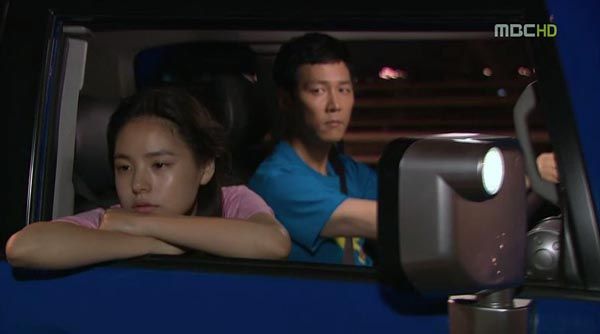
Was there ever such heartbreaking confusion over the meaning of
the word “oppa” as with these two in Triple?
Perhaps you’ve seen that Glossary link in the menu to the left, languishing in neglect with nary an update. I decided, what better way to update than to expound upon those familiar kdrama terms and concepts in a Glossary Series? Because while longtime drama lovers may know exactly what a chaebol is, why pojangmachas rule, and why makjangs induce eye-rolls, sometimes we toss around these Korean terms freely without explanation. And we suspect (we being myself and girlfriday, of course!) that some people are left in confusion.
Hence: the Dramabeans (Extended) Glossary. First up in this ongoing series is that ubiquitous, loaded term that we see in practically every drama ever: “Oppa.”
Of all the terms in the glossary, oppa may be the most packed-with-extra-meaning-and-therefore-confusion entry. The straight definition is pretty simple — an oppa is what a girl calls her older brother, or an older guy whom she feels somewhat close to — but its application is where we get all tripped up in nuance.
The Types of “Oppa”
(1) The brother. This is the most straightforward use of oppa: the blood relative. This can mean a girl’s sibling or cousin, just as long as he’s male and older. Oddly enough, oppa can even mean one’s twin brother, if he were born ahead of the sister. In You’re Beautiful, Mi-nyeo calls her twin Mi-nam “oppa,” because ostensibly he got a few minutes’ head start in the world.
(2) The older guy. The term oppa can also be extended to guys who are not blood-related, but to whom the girl feels some closeness. When a girl is a young child, this is pretty easy to do — every boy older than you is an oppa.
When the girl starts growing older, however, she has a few more choices for things to call older guys and therefore the use of “oppa” becomes at her discretion. Now she gets to pick whether a guy is close enough to be an oppa — or maybe there’s some distance and sunbae, or his work title, or his name would be more appropriate.
A guy who takes on oppa status to a girl he’s not related to also takes on a few implied responsibilities, like generally watching over her and making sure she doesn’t get into trouble. He’s the one who might introduce her to social drinking — but he’s also the guy who’d better cut her off when she’s had too much. An oppa who takes advantage of his drunk charge isn’t worthy of the title oppa. If the currently popular trope of the cold-on-the-outside, fuzzy-on-the-inside hero can look to Mr. Darcy as its archetype, then the quintessential oppa is surely Mr. Knightley.
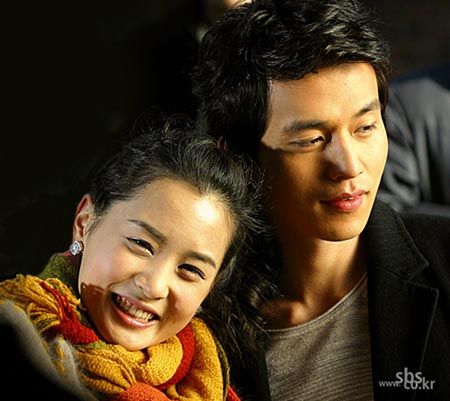
My Girl: Not quite an oppa
You might wonder, in My Girl, why does Yoo-rin call Gong-chan that weird formal word oraboni?
Oraboni is an older, formal version of oppa, most often heard in historical dramas. At first Yoo-rin calls Gong-chan by his title — executive director. However, once they assume the ruse that she is his long-lost cousin, she’s family and it’s no longer appropriate to use his business title. She can’t use his name because he’s older and that would be disrespectful. So why doesn’t she use oppa? Well, they’re virtual strangers, and oppa — even in family settings — suggests some level of closeness. And Gong-chan is a cold, distant sort of guy. To preserve that respect but to not appear presumptuous, she uses the more distant, formal oraboni.
Suffice to say that once you’re an adult, the lines get blurry. Add to that the following complication and here’s where things start getting tricky:
(3) The romantic oppa.
Hooo boy, now this is the big one.
A girl often calls her (older) boyfriend “oppa.” I know. It’s weird. It’s just how it is.
So you can imagine that the word now takes on all these added implications. No longer are you just the protective older brother-figure. Now the oppa is the object of romantic affection — the manly man, the stud. You take those earlier connotations of the brother-oppa (respect, guidance) and you add in romantic adulation? It’s a heady combination.
There’s a reason the denizens of the Open Thread have coined the term “Oppa Pout Wiggle,” or “O-P-W.” In short, it’s that whiny, girly, fussy way a girl pouts, “Oppaaaaaaaa” when she wants her boyfriend to do something for her. Personally, I find the oppa-whine immensely annoying, but there’s a reason the guy always crumbles. (Key example: Sung Yuri’s batty eyelashes and oppa-whine to Hyun Bin in Snow Queen. Also known as Samsooki’s kryptonite. There’s a particularly robust discussion about the O-P-W in Open Thread #81.)
Here’s an explanation in the words of Min-ae of 2006’s Soulmate:
The Application (and Complications) of “Oppa”
When a relationship is clear-cut, things are simple. But in kdrama-land, things are never clear-cut and one relationship always wants to be another kind of relationship. Hence all the blurry lines.
Take Triple. Haru (Min Hyo-rin) uses oppa with Hwal (Lee Jung-jae), her ex-stepbrother from childhood. They haven’t seen each other in years but when they reconnect, he’s still her oppa.
She also uses oppa with his buddy Hyun-tae (Yoon Kye-sang) — but why does she use “ajusshi” with a third friend Hae-yoon (Lee Seon-kyun), when they’re all the same age? (Ajusshi is used with older men.) Well, Hyun-tae is goofy, fun, and young at heart — oppa seems fitting. Hae-yoon is much more professional and acts like a real grown-up, so he gets the ajusshi treatment. Note that when Haru later switches to calling him oppa, he LOVES it. It makes him feel younger, plus it’s much cooler to be an oppa than a crotchety ol’ ajusshi.
There’s a scene in Triple (Episode 3) when the adorable Song Joong-ki, who has a crush on Haru, is miffed with her. She apologizes, calling him oppa, and immediately his attitude drops — he turns into a giddy, excitable boy. She doesn’t mean it flirtatiously, but it suggests that romantic vibe he so wants with her.
And then, another wrench is thrown into the works when Haru starts to develop feelings for Hwal — meaning that he starts to encompass all THREE meanings of oppa.
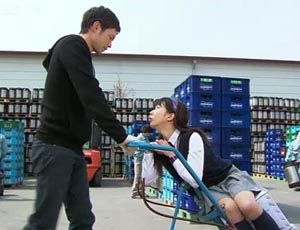
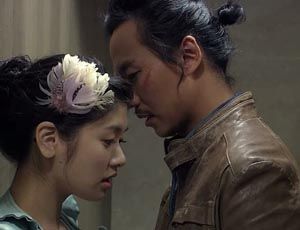
Two very different kinds of oppas: Cinderella’s Sister and Bad Guy
This romantic-platonic complication runs both ways. In the case of Song Joong-ki above, he wants that “oppa” usage to cross the divide from platonic into romantic. In an opposite scenario, a girl may desperately want to advance to the romantic stage with her oppa, but he sees her in a purely sisterly light. For instance, Cinderella’s Sister: Hyo-sun uses oppa readily with Ki-hoon, as she looks up to him and adores the ground he walks on. He merely thinks of her as a sister, but contrast that with Eun-jo. Could you imagine the reaction she’d get if Eun-jo ever tried to call Ki-hoon oppa? I’m guessing that would be the first and last time, since he’d be dead from shock.
In Coffee Prince, confusion about Eun-chan’s (Yoon Eun-hye) gender is exacerbated by her sister teasingly calling her oppa. Eun-chan already looks like a guy, so when her cute younger sister goes around calling her oppa (instead of the word for sister), it’s no surprise that Min-yup assumes that lady’s a dude.
In Que Sera Sera, Hye-rin calls Joon-hyuk oppa. They’re not related, but he was raised as her brother. As adults, the two have a secret affair, and you get the sense that Hye-rin relishes calling him oppa, which sounds like one meaning of the word but is spoken intending the other. (Also: WTF kdramas and your obsession with faux-incest?)
In the recent Bad Guy, 20-year-old Mo-nae has taken a liking to Gun-wook (Kim Nam-gil). Before she knows his name, there’s enough of a tangible age gap that she has to call him “ajusshi”… but after they bump into each other a few times and are on speaking terms, she asks for his name, and immediately switches to “Gun-wook oppa.” And now that she is dating him, she uses oppa freely.
Basically, the rule of thumb is: the closer you are, the more you can break the rules and the more you can use oppa.
In conclusion?
Oppa is a word with power. Don’t abuse it!
To cap things off, here’s the 2000 pop song “Oppa,” as sung by Wax and featuring a young Ha Ji-won. The song pretty much encapsulates the whole oppa dilemma:
I liked that simple, casual vibe
I just thought of you as a good person
But what’s up with this? I keep feeling you as a man
I must be in love with youOppa, only look at me.
Are you so busy?
It hurts my feelings
Why don’t you understand how I feel?
Oppa, why are you looking at her?
See, she’s bad
Look, take me now
Take me nowWhy won’t you see me as a woman?
Why do you keep saying it can’t work?
Look at other couples, they all start off as oppa
In the end they love and live happily
Next up: girlfriday defines noona.
Tags: Bad Guy, Cinderella's Sister, Coffee Prince, My Girl, Triple
 Interview with Kim Yoo-jung
Interview with Kim Yoo-jung Hello Dramabeans series
Hello Dramabeans series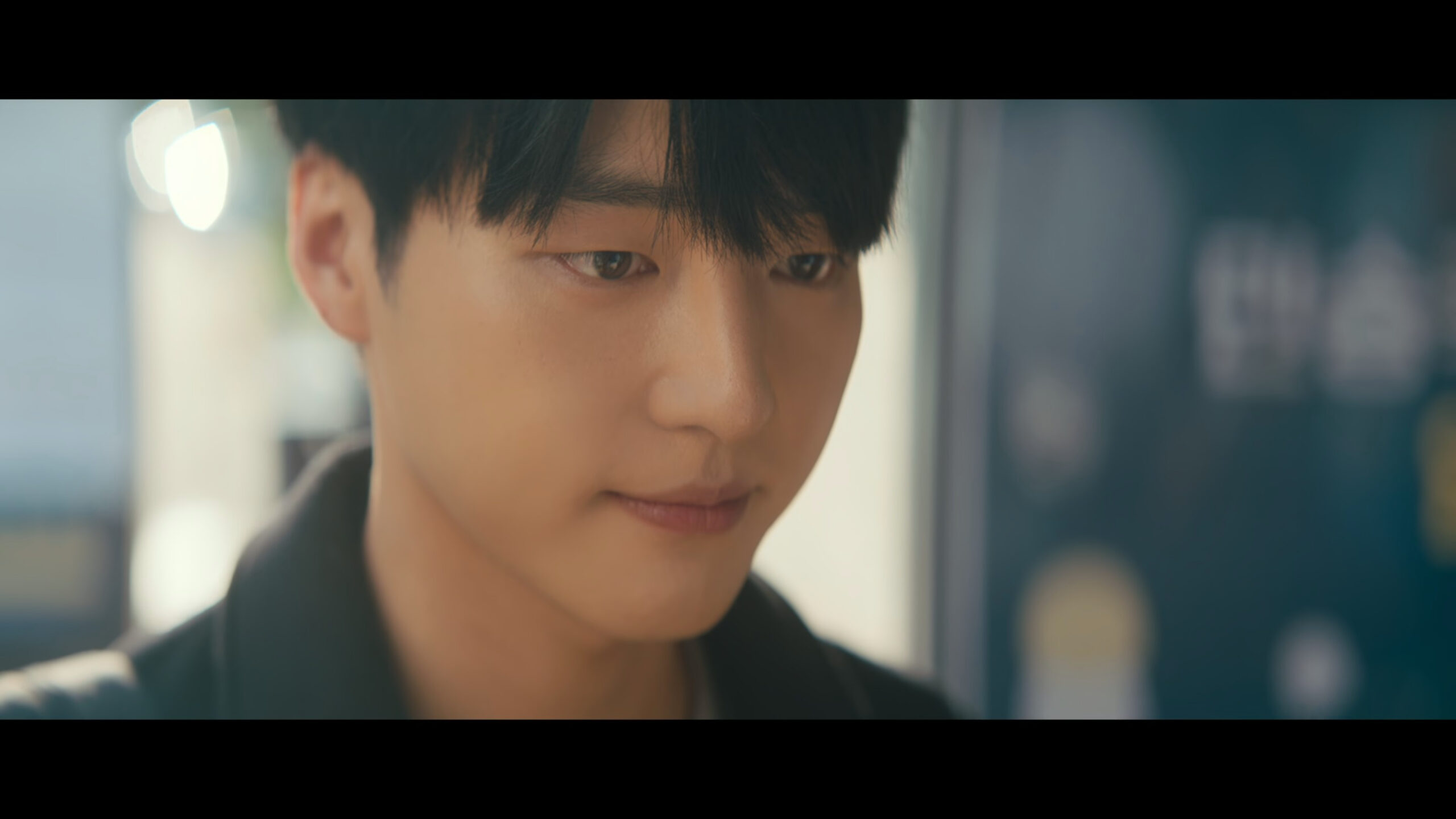
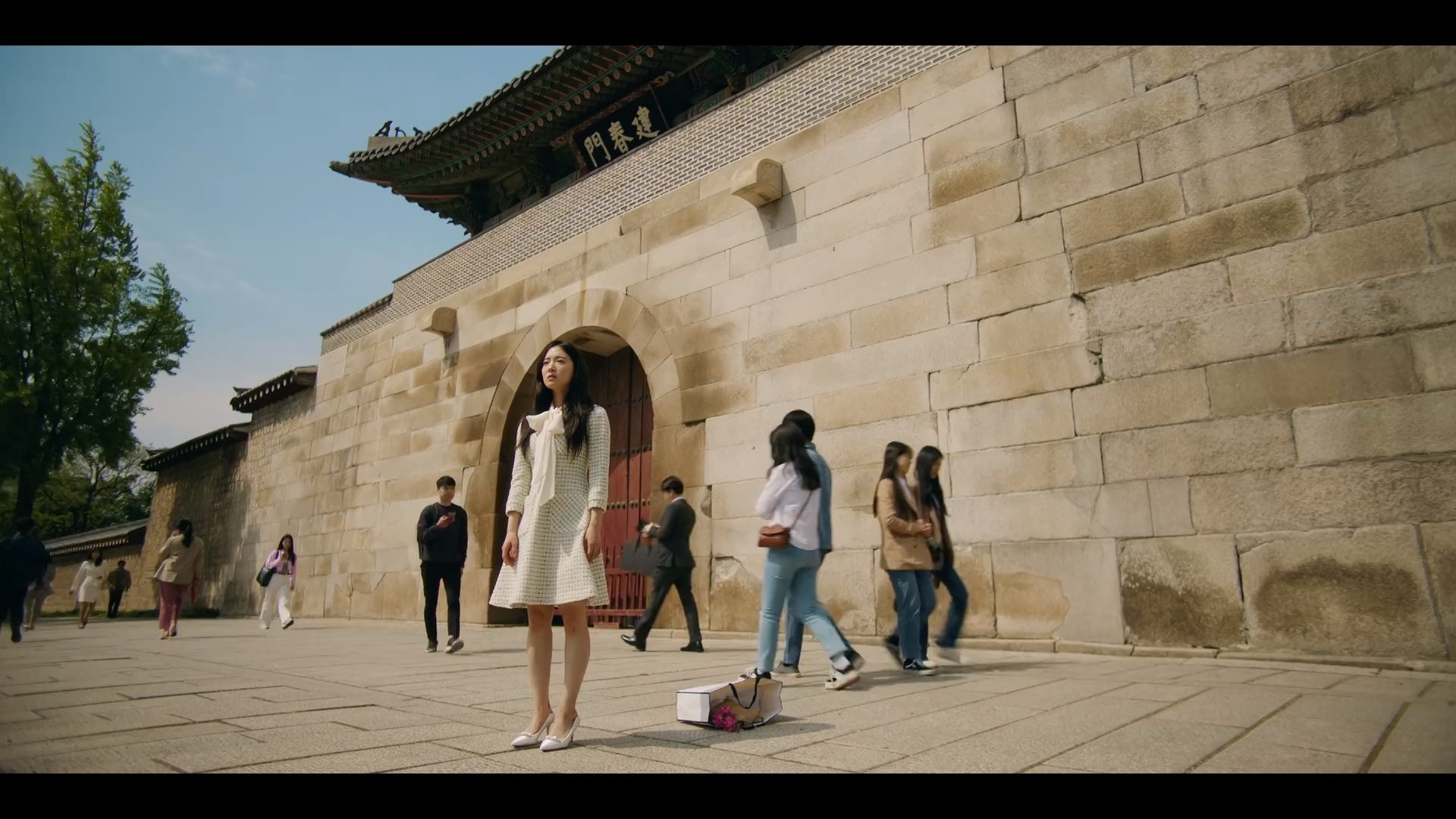


![[2022 Year in Review] The Bean Count](https://www.dramabeans.com/wp-content/uploads/2022/11/beancount_2022.png)

Required fields are marked *
Your email address will not be published. Required fields are marked *
101 xiaoSxin
June 26, 2010 at 8:54 PM
Oh my god JB.. these are the reasons why I love your blog and writing.. keep it up!! when i read your scenario if Eun Jo ever tried to call Ki Hoon oppa.. i was ROFL!!!!!!
Required fields are marked *
102 Andromytta
June 26, 2010 at 9:04 PM
OK, I have a bit of a strange question with regards to "Oppa". Could it be used by an older female to a younger male she was close to if, for example, she was of a diminutive stature? I'm only 4'6, so that is why I was wondering. Not that I'm close to any younger Korean men. *lol*
I admit it, the fan girl in me is dying to call an idol boy "Oppa" some day!
Required fields are marked *
103 mimi
June 26, 2010 at 9:33 PM
Is it only recently (by that, it could mean within the last 20 yrs) that the term 'oppa' has carried that romantic element to it? I know the Korean language has evolved in some respects. Just wondering.
Required fields are marked *
104 Laeah
June 26, 2010 at 9:49 PM
Oh Jesus. More people will run around saying Oppa... if you are going to try to teach Korean, can we not teach words that will be misued and overused? Can't we teach REAL Korean sentences or something.
It's going to end up like all the little Japanese otaku freaks saying Baka. Annoying as hell and pointless.
Required fields are marked *
105 zerohundred
June 26, 2010 at 9:58 PM
Had to pause through reading to love your forever for this: If the currently popular trope of the cold-on-the-outside, fuzzy-on-the-inside hero can look to Mr. Darcy as its archetype, then the quintessential oppa is surely Mr. Knightley.
Two of my favorite things in one post! K-dramas and Jane Austen!
Required fields are marked *
106 mimi
June 26, 2010 at 10:12 PM
... That Wax Oppa song, from 0:56 - 1: 23, it sounds dentical to Cyndi Lauper's 1983 song, "She bop" (1:15 - 1:48, the chorus)!! Hmmmm......
http://www.youtube.com/watch?v=EAzm64zXNjk
Required fields are marked *
107 Javabeans
June 26, 2010 at 10:15 PM
@Laeah,
I'm not trying to glorify a Korean term to promote its misuse, as you accuse. This post (and this series) is here to demystify a very common word that often has a lot of drama fans confused, by explaining and putting it into context. I fail to see what is so offensive about that.
Required fields are marked *
108 starlighttears
June 26, 2010 at 10:39 PM
LOVE it jb :)
I think definitely though that kdramas are at fault for popularising the word oppa and especially the whole three mix is SO kdrama. I first saw it in Stairway to Heaven and haha it doesnt get more confusing than that.
Your right, its very loaded, and lots of people take issue with it, but also theres the added element that there is no 'oppa' equivalent in vietnamese, chinese or japanese- well there is, but like nothing that carries the same weight so I think thats why people are hooked on it. Ive been on forums where there has been discussion of non korean girls using it on korean guys, or korean girls using on on korean guys, or both non koreans using on eachother.
But really, I adore the word but yes people, its a sign of closeness. dont call them oppa right off the bat.
Definitely now, I think its either the blood relative, or if not, the girl has romantic feelings for the guy.
Ironically, I only call one guy oppa and hes my good friend/ crush of four years.
oh kdramas, you influence daily life way too much.
Required fields are marked *
109 xiaoSxin
June 26, 2010 at 10:57 PM
JB, I think Laeah is new to your blog, and does not understand the purpose and nature of your site or how your readers are..
Being a follower of your blog, I understood immediately the context of your post and I think I'll love the Glossary series.
I HAVE A QUESTION JAVABEANS..
Who is the Mr. Darcy and Mr.Knightley that you mentioned as the archetype???
Required fields are marked *
110 Shar
June 26, 2010 at 11:52 PM
I love this, javabeans! :) Great addition to your already addictive recaps.
In Tagalog, we have "kuya," but both sexes use it to call an older guy. If "oppa" is romantic, "kuya" is like the male counterpart of "noona," because the older guy would insist on dropping the word if he starts thinking of the girl as a woman.
OPW is annoying as heck. I'm racking my brain for any instance when I didn't mind the OPW, and I still can't think of one.
Required fields are marked *
111 j-star
June 26, 2010 at 11:53 PM
@ xiaoSxin
Mr Darcy is from Jane Austen's novel Pride and Prejudice and Mr Knightley is from Jane Austen's novel Emma. Both these characters are the typical romantic heroes and actually more like the original :) hope that helped ^^
haha jb I love this new section to your website, makes the website even more awesome then it already is ^^ I wouldn't even know where to start if I was trying to explain the term oppa! :) haha
&& YAY for Wax's Oppa! i've loved that song since forever. the lyrics are fit so well with the term oppa and the shenanigans that come with it :)
Required fields are marked *
112 sallynally
June 26, 2010 at 11:59 PM
@starlighttears, I think there you're wrong. The use of oppa and the different meanings it carries is more a reflection of the actual Korean society than the other way around. If anything, kdrama merely brought the use of the word to the limelight to non-Koreans.
@xiaoSxin, hehe, I can tell JB is a big Jane Austen fan, which explains her love for kdramas. :-) Mr Darcy is the male protagonist in Austen's "Pride and Prejudice" and Mr. Knightley is the male protagonist in Austen's "Emma."
Required fields are marked *
113 sleeplessinwgtn
June 27, 2010 at 12:29 AM
Could an ahjussi become an oppa?
In keeping with the Jane Austen theme, i the case of Col. Brandon in Sense & Sensibility, Marianne would presumably address him as 'ahjussi' initially and towards the end, when they become romantically involved, would she have called him 'oppa' then, at least before they are husband and wife?
When I started watching K-drama, without knowing you have a glossary of terms, I asked my teenage son to ask his Korean classmates the meaning of the names they call people like noona, noonim, oppa, etc. The explanation is not as comprehensive as yours, of course, but shed some light.
Thanks!
Required fields are marked *
114 Anne
June 27, 2010 at 12:56 AM
Hahaha, this is hilarious. I personally only use 'oppa' for my cousins because it sounds too intimate if I call a guy friend that. I'll think about using it if...when I get a boyfriend. I've got to think positive. ;)
It was great to see all the references from dramas. Thanks javabeans and keep up the great work!
Required fields are marked *
115 pn
June 27, 2010 at 1:49 AM
@Andromytta
Not sure if anyone else had answered your question, but no an older female would not call a younger male "oppa", unless they were purposefully being cute and saying it in a joking manner.
But LOL on the height reference. sorry! BUT, he can call you "noona"!
Required fields are marked *
116 glencorajane
June 27, 2010 at 2:26 AM
Thanks Javabeans, I enjoy reading your explanation of the term since I am not korean.
Personally, the thing I find unique in korean language among other asian languages is the different use of terms of older or younger people. It is a very strong reflection of the country being affix with seniority or age.
Last week when I was in Seoul, I was chided by my tour guide who said I should have use komawo -eyo to the older taxi driver rather than komawo. After that incident, I think I will just stick with kamsahamnida for all occasions to be safe!
Required fields are marked *
117 glencorajane
June 27, 2010 at 2:28 AM
oh, by the way, I am going to translate this into chinese for a chinese forum on korean stars. hope you dun mind that, but I will definetly say it is a translation from your article.
Required fields are marked *
118 sorcy79au
June 27, 2010 at 2:37 AM
HEY! I finally found out what the kekeke means at the end of people's twitters! WOO!
Thanks JB! :-D
Required fields are marked *
119 purplevibe
June 27, 2010 at 3:09 AM
Thanks for explaining the Oraboni part.. now I understand... =) Interesting...
Required fields are marked *
120 Denali
June 27, 2010 at 3:16 AM
"Oppa" is also how daughters call their fathers - take the movie "my frivolous wife" for instance, at the end of which she eventually uses that word for her dad, which caused him to almost cry as it was a first.
Thus I tend to think that "oppa" conveys the fatherly features: protection, strength, omnipotence, omniscience, care and yes, love. It is a sign of respect and closeness, indeed, yet I find it awkward in a wife-husband relationship, unless for the purpose of teasing him.
Required fields are marked *
121 atsirk
June 27, 2010 at 4:06 AM
Too bad Philippines' version of Oppa isn't as sexy or as awesome as "Oppa"...tsk tsk tsk...
I want to have my own Oppa. In fact, I want to call him Oppa!!!
Required fields are marked *
122 rainerust
June 27, 2010 at 4:19 AM
@Denali
Er, not too sure, but I suspect you confused "Oppa" and "Appa". "Appa" refers (informally) to "Father", whereas "oppa", as JB has so delightfully outlined, refers to older brother/male (with/without romantic interest) etc.
Also @Laeah
JB's just trying to give a (really) good explanation of the term "oppa" so people don't get confused about how to use it, as opposed to knowing that such a word exists, but throwing it into any old context without appropriate usage. And yes, a lot of people use the "baka", but s'long as you know you're calling someone an idiot by using that term, and it's...'appropriate' (I use 'appropriate' here loosely, because generally 'baka' has negative connotations, unless it's used in a joke) I don't see why it's annoying to have people using it. Please do show some respect for JB's blog, and her readers, thanks.
Anyway, great job JB! I figured out the connotations of terminologies like oppa, noona etc used in kdramas after the first dozen series or so, but this would certainly be useful for those who are just discovering the world of kdrama. LOL Wish I had this when I first started, but it's never too late! Can't wait to see what other words you and GF will add to your glossary. :)
Required fields are marked *
123 David
June 27, 2010 at 7:52 AM
I've figuered out oppa - not to the "nth" degree but enough to understand through context. Two that make me shrug are (pardon my spelling) - Oni (or ie) and uroboni I know oni refers to women and uroboni refers to men. Other than that - I haven''t gota clue.
Thanks from a Scotch-Irish-Italian Korean dramas fan.
Required fields are marked *
124 jossy
June 27, 2010 at 8:23 AM
lovely clarification JB.. and I sooo remember that whole OPW debacle back many OTs ago.. Its a guarenteed success!, it was pretty entertaining too :) oppa~ lol
Required fields are marked *
125 pohonphee
June 27, 2010 at 9:31 AM
Never imagine the explanation of word oppa can draw so many comment and they are interesting to read, like seeing it from many different point view from many different culture. Thing like this that make me keep coming to this site.
Perhaps like other Asian, word oppa isn't much confusing to me (after watch few kdrama series I can figure out what oppa word mean and its application (and complication) as you say JB). I remember my Mom always upset and complaint when I called my family members without term that refer their position in the family ( calling them with name only is like doing a sin ). I think those kind of words just one of the way to show our respect to our elderly, family, and culture as Asian.
PS: I love Jane Austen too
Required fields are marked *
126 Andromytta
June 27, 2010 at 9:46 AM
@pn: Thanks! :)
Required fields are marked *
127 Javabeans
June 27, 2010 at 10:31 AM
Oh, and to answer the question of why I personally couldn't call a boyfriend oppa:
I suspect this is also why other Korean American ladies would cringe at the thought. I was raised in the States, and the only people I ever called oppa were blood relations. I understood the application of oppa to other guys, but I never used it that way -- any boys who would have understood what oppa means were just as American as I was. I was way too used to the meaning being reserved for blood relatives and "oppa" would forever be reserved for that purpose.
At first I thought the Korean language was weird and wrong and gross for using the word "brother" to describe a boyfriend. But that was my narrow-minded Western bias. Now I understand that the word "oppa" includes the meaning of brother, but not exclusively. It also means "older friendly guy" and "older boyfriend."
Required fields are marked *
128 pabo ceo reom
June 27, 2010 at 10:37 AM
@ JB
Thanks for answering my question. Now I realize I actually feel the same way! Oppa is so deeply ingrained in me as an older blood brother type of thing that using it romantically just makes me cringe.
Of course like you said, that's just a Korean American bias but it's one that I don't think I can get over....
Required fields are marked *
129 birdscout
June 27, 2010 at 11:04 AM
@127 javabeans
I went through the exact same process when learning about the "other" meanings of "oppa", and it was all thanks to kdramas:)
Required fields are marked *
130 Denali
June 27, 2010 at 11:46 AM
@ 22 rainerust
I had not thought about it, because it sounded so similar to me but now that you've mentionned it, I did some research. You are right: "dad" is spelled 아빠 (short for 아버지, I guess) according to Google translation while older brother is 오빠. ^.*
Required fields are marked *
131 crzycpl
June 27, 2010 at 1:49 PM
I don't think the Korean language is the only one to confuse / muddle the term 'older brother' with 'my older boyfriend'. I think Vietnamese (just to randomly name one) does the same, although I'm no expert in the language to be a reliable source of information.
Whilst I would love to call someone an 'oppa' one day (wishful thinking since most of the men in kdrama land fall into the 'dongseng' category), I too think that it has been hammered into my head that there are certain terms and references for blood relations and to cross the boundary between blood relation and boyfriend would seem weird to me.
Nonetheless, in kdrama land, the term oppa has become an endearing one to me and has humoured me greatly over the years when all of a sudden the words are muttered by the strong female lead and everyone (including the male it is aimed towards) shudders from the sound. lol I think I'm just referring to Eun-chan and Han-kyul in Coffee Prince. I love it and the memory still brings a smile to my face to this day.
This has become a very long post but I love that you have remembered the scene in Soulmate as I think it was also in this scene that I learnt the power of the term oppa. Thanks for lighting up my day, JB.
Required fields are marked *
132 DamselFly
June 27, 2010 at 2:33 PM
Hi, I'm a new K-Drama addict, and I'm interesting in knowing the implication(s) of the word usage 'ajusshi'. I've heard that used in 'Be Strong Geum Soon', which Geum Soon calls Jae-hee 'ajusshi', and more recently, in 'Neighbor Enemies/The Enemy Next Door', Ha Young (Han Chae Ah) addresses Ki Hoon (Choi Won Young). In these two cases, the implications are romantic, but is this used often in K-Dramas?
Required fields are marked *
133 bd
June 27, 2010 at 8:10 PM
This was a pretty amusing post...
Required fields are marked *
134 refresh_daemon
June 27, 2010 at 9:07 PM
Hey JB,
I've recently picked up on your site as a good source of English-language information and analysis for korean television and thank you for your continued work. I thought I'd give back by providing some thoughts regarding the Korean fascination with faux-incest stories.
I once read an essay about time travel in Korean film, which focused on the films Il Mare and Ditto. In both of these instances, the two romantic interests were divided by the impossible barrier of living in different times. The paper then continues to draw a parallel with the impact on the dividing of the Korean peninsula on the Korean psyche, sounding the implication that some of the interest in these time travel romance stories is influenced by a desire for reunification.
While, I don't necessarily buy the thesis of that essay, I think that it has a point in that I think that the division of the one Republic of Korea into separate states after Japan's relinquishing of the state after World War II had a tremendous impact on the psyche of most Koreans, watching as their countrymen became divided by a seemingly impossible barrier of politics and ideology, while harboring a hope for reunification.
Here's where the faux-incest comes in: Incest is tremendously taboo in most cultures (and with good scientific reason), so the implication or appearance of incest is clearly an impossible barrier of a less sci-fi nature than living in different eras. Nonetheless, that possible incest or the appearance of incest also implies a closeness between the individuals involved and therefore the barrier between the two seems all the more difficult and unfair.
The division of the single state into two Koreas is only the most visible and memorable of the "impossible barriers" in Korean history and society. Previously, Koreans struggled against other barriers, especially class (think of folk tales like Chunhyang). Consequently, I think that part of this desire to cross impossible barriers is partially ingrained by culture and history and manifests itself in this trope of faux-incest as one of many reasons why two otherwise deserving people can't be together.
Another reason why it might be so popular is because there is a cultural tendency in Korea to follow the leader and if one hit drama uses the trope successfully for huge ratings, it's then considered almost a given that a new show might reuse that idea. A last hypothesis is that it's done simply because the writers are lazy and it's one of the easiest ways to complicate a relationship. Imagine this PD/writer discussion:
Writer: I got it, our arrogant rich jerkface male lead and our comely innocent impoverished female lead instantly have a belligerent relationship, during which her regular tirades against him eventually wear down his defenses and his small moments of being kind to her cause her to fall in love with him too, but neither of them know it.
PD: Which will work for maybe *four* episodes. Maybe five if I throw in a good half hour of angsty brooding set to our soundtrack music. What happens when they finally are able to express their feelings for each other? How do we get this to our magic 16?
Writer: I know! We'll imply that our female lead is an orphan whose parents are unknown and that our male lead's aunt and uncle ran away after being disowned for not marrying within the wealthy persons community. This way... THEY MIGHT BE RELATED! I mean... it worked for Winter Sonata, right?
PD: Brilliant! Multiply the incest with the naiveté of the leads and we got 16 episodes! All we need now is a concept...
Writer: Oh! A contract relationship! He pays her to fake being his girlfriend in order to appease his grandfather's will and gain his inheritance...
...well... anyone else have any ideas for why we have so much faux-incest in Korean fiction?
Required fields are marked *
135 gia
June 27, 2010 at 9:09 PM
http://www.youtube.com/watch?v=E08473ynZeE&feature=related
Required fields are marked *
136 FitSi
June 28, 2010 at 2:24 AM
just reading through the "Oppa" & "Noona" post......isn't the use of these 2 words a typical Asian thing?
I'm Indonesian & we have similar words for Oppa -> Mas and Noon -> Mbak. So I can totally relate the way these words are used when watching K-drama. "Mas" is usually used to call your older brother, but then your boyfriend can also be called that way. Eventhough your boyfriend is younger than you, you may want to call him "Mas"..... it' just to show that you (as the girl), respect/look up to your boyfriend.....a typical male-female Asian role. People say I'm a very independent gal...but stil, I love to lean on a guy! Asian all the way I guessss......
Any other Asian countries having similar use of the words?
Required fields are marked *
137 speed198
June 28, 2010 at 3:02 AM
http://www.youtube.com/watch?v=7OR5EWGU1Jg&feature=related
this is very interesting video about " OPPA"
actress Han Ye Seul said "OPPA" so manny versions~~ lol~
Required fields are marked *
138 The rANT and The RAVEn
June 28, 2010 at 7:33 AM
I love Pride and Prejudice and Emma! And I do agree that Mr. Knightley is a good example of an Oppa Class II and Class III.
Required fields are marked *
139 ladysaotome
June 28, 2010 at 10:14 AM
I thought it was interesting in Brilliant Legacy when Park Joon Sae told Go Eun Sung, "no man wants to be Oppa to the woman he loves..."
Required fields are marked *
140 Auntiemame
June 28, 2010 at 3:54 PM
Ohhhhh! So, that's how the song, "Oppa" is supposed to sound! Versus Chae Rim's version in "Oh, My Lady". hahahaha
Thank you.
Required fields are marked *
141 yenthi
June 28, 2010 at 5:52 PM
@36 FitSi
As previously stated here by others, Vietnamese has "Anh" (Oppa) and
"Chi" (Noona). "Em" is for younger siblings or cousins (of both genders), but also spoken by males towards their female significant others, so if the girl calls the guy Oppa/Anh, then the guy calls the girl "Em"
Required fields are marked *
142 peanut butter
June 28, 2010 at 8:18 PM
LOVE soulmate!! and i love min-ae's explanation. i remember laughing my head off the first time i listened to it because i always used oppa but never really thought about it. sort of like how you dont think about what color your door is, you just KNOW but you never realize it (or is that just me?)
anyways, its true not to abuse "oppa" because when used correctly, its like the "bend and snap"!
Required fields are marked *
143 Gloria
June 28, 2010 at 9:59 PM
@ Javabeans: I totally understand! :O I have an older brother (who I call oppah) and am Korean American. I've understood how people in Korea use it even before reading this article, but I've always reserved "oppah" to blood relatives, which is why I can't imagine calling my own boyfriend that.
Haha I remember this one time I accidentally called my friend oppah o w o; And he really liked it. Javabeans isn't joking when she says the word "oppah" holds power, folks. x)
Required fields are marked *
144 Lilian
June 28, 2010 at 11:17 PM
I'm loving the Glossary series a lot. Keep up the good work! And this reminds me of my first encounters with K drama. I was so confused with oppa, hyung, noona and onni....Now of course, I know which is which!
Required fields are marked *
145 r.
June 29, 2010 at 3:43 PM
Just chiming in to add that a) I LOVE this glossary series and b) that yt with the explanations of Oppa had me bent over wheezing with glee. Glorious!
Required fields are marked *
146 Yoyo
June 30, 2010 at 1:21 AM
i like how people call each other in korean language its so beautiful
Required fields are marked *
147 Maria
June 30, 2010 at 12:01 PM
Opa means Grandfather in German, therefore its funny to listen to young girls calling their boyfriends oppa :D
Also in greek there is oppa too...I'm not sure but in greek its like a sound of joy or hapiness (correct me if I'm wrong)
Required fields are marked *
148 sojuhyung
July 2, 2010 at 3:25 PM
lmao @ Cinderella's Sister refrence
Required fields are marked *
149 cont'd
July 2, 2010 at 9:10 PM
Thank you for the clarifications! LOL especially for "oraboni". I had seen My Girl during its original run (what seems MANY years ago) and I've never understood the difference between "oraboni" and "oppa". In my confusion, I had assumed "oraboni" had uncle-ish undertones to it... hahaha
Now I understand! Hallelujah
Required fields are marked *
150 Startulle
July 11, 2010 at 8:45 PM
"Could you imagine the reaction she’d get if Eun-jo ever tried to call Ki-hoon oppa? I’m guessing that would be the first and last time, since he’d be dead from shock"...............LOL!
I love to read ur post!!!!
Required fields are marked *